If you’re driving your Honda Civic on a hot summer day and suddenly realize that the air conditioning system isn’t working, it can be quite frustrating.
The AC system in your Honda Civic is an important component that helps keep you comfortable while driving, especially during hot weather.
However, there are several reasons why your AC Not Working In Honda Civic as it should. In this article, we will discuss the seven most common causes of AC failure in a Honda Civic and how to fix them.
From low refrigerant levels to a malfunctioning blower motor, we will cover each issue in detail and provide you with the necessary steps to get your AC system up and running again.
So, if you’re experiencing issues with your Honda Civic’s AC system, keep reading to find out what may be causing the problem and how to fix it.
There are many reasons why your Honda Civic AC might not be working. Some of the most common causes include: Low refrigerant: This is the most common cause of AC not working. Dirty condenser, Faulty compressor, Blown fuse, Bad blower motor and Blend door actuator.
Table of contents
Causes Of AC Not Working In Honda Civic:
| Cause | Possible Fix |
|---|---|
| Low refrigerant | Recharge the refrigerant |
| Dirty condenser | Clean the condenser |
| Faulty compressor | Replace the compressor |
| Blown fuse | Replace the fuse |
| Bad blower motor | Replace the blower motor |
| Blend door actuator | Replace the blend door actuator |
| Evaporator core leak | Repair or replace the evaporator core |
1. Low Refrigerant Levels:

If the AC in your Honda Civic isn’t working, it could be due to low refrigerant levels caused by leaks in the system.
Refrigerant absorbs heat and moisture from the air inside your car, and without enough of it, your AC won’t cool the air properly.
To fix this, you’ll need to have your refrigerant levels checked and replaced if necessary. This can be done by a professional mechanic or yourself if you have the necessary tools and skills.
Refrigerant replacement is a straightforward process, but it requires proper handling and disposal of the old refrigerant.
It’s important to use the correct type of refrigerant for your Honda Civic because using the wrong type can damage your AC system and even pose a safety hazard.
Any leaks in your AC system should be fixed before adding new refrigerant, as the new refrigerant will simply leak out again.
If you suspect that your AC system has low refrigerant levels, it’s best to have it checked by a professional to ensure that the problem is properly diagnosed and fixed.
Remember, regular AC maintenance can prevent many AC issues, including low refrigerant levels.
2. Faulty Compressor:

A possible cause of a malfunctioning air conditioning system in your Civic could be a faulty compressor.
The compressor is responsible for compressing the refrigerant and circulating it through the system. If it is not functioning properly, your AC system may not be able to cool your car’s interior effectively.
If you suspect that your compressor is the problem, there are two potential solutions: compressor repair or compressor replacement. Repair may be possible if the issue is minor, such as a broken belt.
However, if the compressor itself is damaged, replacement will be necessary.
It is important to consult with a qualified mechanic to determine the best course of action and ensure that the repair or replacement is done correctly to avoid further damage to your car’s AC system.
| Problem | Solution |
|---|---|
| Broken Belt | Compressor Repair |
| Damaged Compressor | Compressor Replacement |
3. Electrical Problems:

If you’re experiencing issues with your Honda Civic’s electrical system, it’s important to know the signs of electrical problems and how to fix them.
Signs of electrical problems may include flickering lights, dead batteries, and malfunctioning electronics.
To fix these issues, you may need to replace fuses, check wiring connections, or replace faulty components.
Signs of Electrical Problems:
As luck would have it, when your Honda Civic’s AC isn’t working, there are some telltale signs of electrical problems that you can easily spot.
Some of the common signs of electrical issues include flickering lights, blown fuses, faulty wiring, and burnt-out switches.
Moreover, if you hear any strange noises when turning on your AC, it could also be due to electrical problems.
If you suspect that your AC isn’t working due to electrical problems, there are some troubleshooting techniques that you can try.
For instance, you can check the fuses, circuit breaker, and wiring to see if there are any visible signs of damage or wear and tear.
If you’re not comfortable with DIY repairs, it’s best to take your car to a professional mechanic who can diagnose and fix the problem for you.
Remember that ignoring electrical problems can lead to more serious issues down the line, so it’s always best to address them as soon as possible.
How to Fix Electrical Issues?
To remedy electrical problems in your car, you can start by checking for visible signs of damage or wear on fuses, wiring, and circuit breakers. This will help you identify the root cause of the issue and determine the best course of action to fix it.
Some common mistakes to avoid when dealing with electrical problems include ignoring warning signs, using incorrect parts or tools, and failing to follow proper safety procedures.
When fixing electrical issues, it’s important to follow best practices such as using high-quality replacement parts, following the manufacturer’s instructions, and testing all components thoroughly before reassembling.
It’s also a good idea to have a clear understanding of the electrical system in your car and to consult with a professional if you’re not confident in your ability to diagnose and fix the problem.
By taking these steps, you can ensure that your car’s electrical system is functioning properly and avoid costly repairs in the future.
4. Clogged Air Filter:
If you’re experiencing reduced engine performance or a decrease in fuel efficiency, it could be due to a clogged air filter.
Common symptoms of a clogged air filter include decreased acceleration, increased engine noise, and a decrease in overall power.
To remedy this issue, you can either clean or replace your air filter, both of which are simple and straightforward processes.
Symptoms of a Clogged Air Filter:
You might notice your Honda Civic’s AC not blowing cool air if your air filter is clogged, causing reduced airflow and decreased performance. A clogged air filter can also lead to reduced fuel efficiency and increased emissions.
It is important to understand the significance of clean air filters in cars, as they provide several benefits.
A clean air filter allows for optimal airflow, which in turn improves the performance of your vehicle’s engine. This leads to better fuel efficiency and reduced emissions, as well as a longer lifespan for your engine.
Regularly changing your air filter can also save you money in the long run, as it can prevent costly repairs down the line.
Check your owner’s manual for recommended intervals for air filter replacement, and make sure to have it changed regularly to ensure your AC is working at its best.
| Benefits of a Clean Air Filter | Importance of a Clean Air Filter | Signs of a Clogged Air Filter | Fix for a Clogged Air Filter | ||
|---|---|---|---|---|---|
| Improved engine performance | Saves money in the long run | Reduced airflow | Regularly change air filter | ||
| Better fuel efficiency | Prevents costly repairs | Decreased AC performance | Check owner’s manual for replacement intervals | ||
| Reduced emissions | Longer engine lifespan | Reduced fuel efficiency | Professional cleaning or replacement | ||
| Improved AC performance | Ensures optimal airflow | Increased emissions | Regular maintenance and filter replacement is essential to keep your AC system running smoothly and efficiently, and to prevent potential damage or breakdowns. |
How to Clean or Replace an Air Filter?
Cleaning or replacing your air filter is a simple process that can be done with just a few basic tools and minimal effort. By doing so, you can ensure that your AC system is functioning at its best and avoid costly repairs down the line.
Air filter maintenance is crucial as it prevents dirt, debris, and other particles from entering your engine and causing damage. Regular cleaning or replacement of your air filter can also improve your fuel efficiency and prolong the life of your engine.
To clean or replace your air filter, you’ll first need to locate it in your engine compartment. This is typically a rectangular or circular box with a hose leading to the engine. Once you’ve found it, remove the cover and take out the air filter.
If it’s dirty, you can clean it by gently tapping it on a hard surface or using compressed air to blow out any debris. If it’s beyond repair, you can easily replace it by purchasing a new one from an auto parts store.
With proper air filter maintenance, you can enjoy the benefits of regular cleaning and keep your Honda Civic’s AC system running smoothly.
5. Malfunctioning Blower Motor:
Sometimes, when the AC in your Honda Civic isn’t working properly, the culprit may be a malfunctioning blower motor.
This component is responsible for blowing air into the cabin of your car, and if it’s not functioning correctly, you may not feel any air coming out of your vents at all.
Here are three things you should know about blower motor issues in your Honda Civic:
-
One of the most common signs of a malfunctioning blower motor is a lack of airflow. If you turn on your AC and don’t feel any air coming out of your vents, this could be a sign that the blower motor isn’t working correctly.
-
Another sign of a faulty blower motor is unusual noises. If you hear grinding or squealing noises coming from your dashboard when you turn on your AC, this could be a sign that the blower motor needs to be replaced.
-
Finally, if your blower motor isn’t working, it could be due to a blown fuse. If you check your fuse box and find that the fuse that’s responsible for the blower motor has blown, replacing it could solve the problem.
If you’re experiencing any of these issues, it’s important to get your blower motor checked out as soon as possible.
In some cases, a simple fuse replacement may be all that’s needed, but in other cases, you may need to have the blower motor replaced. A professional mechanic can help you diagnose the issue and recommend the right course of action.
6. Broken Condenser:
If you’re experiencing issues with your Honda Civic’s air conditioning, it could be due to a broken condenser.
Symptoms of a damaged condenser include warm air blowing out of the vents, strange noises coming from the AC system, and a leaking refrigerant.
To fix the issue, you’ll need to replace the condenser. This involves removing the old unit and installing a new one. Be sure to follow the proper procedure and use the right tools and equipment to avoid damaging other components of your car.
Symptoms of a Broken Condenser:
When your Honda Civic’s AC system is malfunctioning, a broken condenser can be a probable cause. This may lead to symptoms such as warm air blowing from the vents or strange noises coming from the AC unit.
The condenser is an essential component of the AC system, responsible for removing heat from the refrigerant and turning it into a liquid state.
A broken condenser can cause the refrigerant to leak, leading to a loss of cooling power and a rise in temperature inside the car.
To help you identify a broken condenser, here are some symptoms to look out for:
- Warm air blowing from the vents
- Strange noises coming from the AC unit
- A visible leak on the ground underneath the car
- A decrease in overall cooling power
If you suspect that your condenser is broken, it’s essential to take action quickly. Condenser replacement is a common solution for this issue, and it’s crucial to follow maintenance tips to prevent future damage.
Regular cleaning of the condenser and checking for debris buildup can help keep it in good condition. Common causes of condenser damage include road debris, accidents, and corrosion.
Preventative measures such as avoiding rough terrain and parking in a covered area can help reduce the risk of damage.
How to Replace a Condenser?
To get your vehicle’s cooling system back on track, it’s important to know how to swap out a faulty condenser.
The process of replacing a condenser involves removing the old one and installing a new one. It’s a fairly simple process that can be done with basic tools, but it’s important to follow the correct steps to avoid damaging your vehicle’s air conditioning system.
Before starting the replacement process, make sure you have the right replacement condenser for your Honda Civic. The cost of a replacement condenser can vary depending on the brand and model, but it typically ranges from $100 to $500.
When replacing the condenser, make sure to avoid common mistakes such as over-tightening the bolts or not properly securing the hoses.
By following the correct process and avoiding these mistakes, you can ensure that your Honda Civic’s air conditioning system is back up and running smoothly.
7. Leaks in the AC System:
Detecting leaks in the AC system of your Honda Civic is crucial for optimal performance and can prevent costly repairs in the future.
Ignoring leaks can lead to low refrigerant levels, which can cause the compressor to overwork and ultimately fail.
Here are some common causes of AC leaks in your Honda Civic and some repair options:
-
Corrosion: This is often caused by moisture buildup in the system and can cause cracks and holes in the AC components. Repair options include replacing the affected parts or applying sealant to the affected areas.
-
Damaged seals: This can happen when the seals around the AC components become worn out or damaged. Repair options include replacing the seals or the affected parts.
-
Loose connections: Over time, connections between AC components can become loose or disconnected, causing leaks. Repair options include tightening the connections or replacing the affected parts.
-
Wear and tear: The constant use of the AC system can cause wear and tear on the components, leading to leaks. Repair options include replacing the affected parts or applying sealant to the affected areas.
-
Faulty components: Sometimes, the AC components themselves can be faulty and cause leaks. Repair options include replacing the affected parts.
To prevent and detect AC leaks in your Honda Civic, it’s important to schedule regular maintenance checks and inspections with a qualified technician.
They can detect and repair any leaks before they become a major problem. Additionally, keeping your AC system clean and well-maintained can help prevent leaks from occurring in the first place.
DIY Repairs vs. Professional Repairs:
When it comes to repairing your Honda Civic’s AC system, you may be wondering if you should attempt the repairs yourself or seek professional help.
While DIY repairs can save you money, they can also be risky if you don’t have the proper knowledge and tools.
It’s important to weigh the pros and cons and know when it’s best to leave it to the professionals to ensure your AC system is working properly.
When to Attempt DIY Repairs:
If you’re feeling confident in your abilities, you can try fixing the AC in your Honda Civic yourself. However, before attempting DIY repairs, it’s essential to consider the dangers and costs involved.
DIY repairs can be dangerous, especially if you don’t have the necessary skills and experience. You risk injuring yourself and damaging your vehicle, which can lead to more costly repairs.
On the other hand, professional repairs can be expensive, and not everyone has the budget for them. If you’re on a tight budget, attempting DIY repairs can help you save money.
Additionally, DIY repairs can be a great learning opportunity, allowing you to gain valuable skills and knowledge about your vehicle.
However, it’s important to remember that some repairs require specialized tools and equipment, which may not be available to the average person. In such cases, it’s best to seek professional help to avoid causing further damage.
When to Seek Professional Help?
Sometimes it’s best to leave the repairs to the professionals to ensure your vehicle is running smoothly and safely. While DIY repairs can be tempting, there are certain situations where seeking professional help is highly recommended.
One such situation is when dealing with a malfunctioning AC system in your Honda Civic. The benefits of seeking help from a professional mechanic are many.
- Firstly, they have the experience, knowledge, and tools needed to diagnose and fix the issue correctly.
- Secondly, they can identify any underlying problems that may have contributed to the AC malfunction and address them as well.
- Finally, seeking timely assistance from a professional can prevent the issue from escalating and causing more damage to your car’s components.
Therefore, if you notice any issues with your Honda Civic’s AC system, it’s best to consult with a professional mechanic as soon as possible.
Maintenance Tips for Your Honda Civic AC System:
To keep your Honda Civic AC system running smoothly, it’s important to follow a regular maintenance checklist.
This includes checking and replacing the air filter, inspecting the condenser and evaporator for damage, and ensuring the refrigerant level is correct.
By performing these tasks, you can avoid AC malfunctions in the future and keep your car cool and comfortable during hot days.
Regular Maintenance Checklist:
Don’t neglect your Honda Civic’s regular maintenance checklist, it’s crucial for keeping your AC system running smoothly and avoiding costly repairs.
Seasonal maintenance is important to ensure that your AC system is prepared for the extreme temperatures of summer and winter.
Before the hot weather hits, make sure to inspect and clean the condenser coils, replace the air filter, and check the refrigerant levels.
Similarly, before the cold weather arrives, check the heater core and ensure that the thermostat is working properly.
DIY maintenance can also help keep your AC system in good shape. Regularly cleaning the air vents and replacing the cabin air filter can improve the air quality and prevent blockages in the system.
Additionally, checking the compressor belt for wear and tear and replacing it if necessary can prevent the compressor from failing and causing damage to the AC system.
By following these simple steps, you can keep your Honda Civic’s AC system in top condition and avoid expensive repairs down the road.
How to Avoid AC Malfunctions in the Future?
Now that you know the importance of regular maintenance for your Honda Civic, let’s talk about how to avoid AC malfunctions in the future.
By following a few simple steps, you can ensure that your AC system remains in top condition, keeping you cool and comfortable even during the hottest days of the year.
One of the most important things you can do is schedule regular professional inspections. Not only will this help identify any potential issues before they become major problems, but it can also extend the lifespan of your entire AC system.
Additionally, taking care of your AC system will save you money in the long run, as you’ll be able to avoid costly repairs and replacements.
Frequently Asked Questions:
How do I know if my Honda Civic’s AC system is leaking?
To diagnose an AC system leak in your Honda Civic, look for oil or refrigerant stains around the AC components. Regular maintenance, such as checking for leaks and replacing worn parts, can prevent AC issues.
Can a clogged air filter cause my AC not to work?
Yes, a clogged air filter can impact your AC performance. It restricts airflow, reducing the amount of cool air that can be circulated in the car. Regularly replacing your air filter can prevent this issue.
Is it safe to attempt DIY repairs on my Honda Civic’s AC system?
If you’re considering DIY AC repairs on your Honda Civic, take safety precautions seriously. AC systems contain refrigerant that can be harmful if not handled properly. Research and follow instructions carefully to avoid injury or further damage to your vehicle.
What are some common signs of a malfunctioning blower motor?
On average, a blower motor lasts between 8-15 years. Signs of a malfunction include weak airflow, unusual noises, and a burning smell. Troubleshooting steps include checking the fuse, cleaning the air filter, and inspecting the motor for damage.
Conclusion and final thoughts 💭
Congratulations! You’ve successfully diagnosed and fixed the issue with your Honda Civic’s AC not working.
With the help of this article, you were able to identify the potential causes and quickly resolve the problem.
By checking the refrigerant levels, compressor, electrical connections, air filter, and blower motor, you’ve ensured that your car’s AC system is running smoothly.
Remember, regular maintenance and upkeep of your car’s AC system is crucial to prevent future problems. Keep an eye out for any warning signs such as unusual noises or weak airflow, and address them promptly.
By taking care of your car’s AC system, you can ensure a comfortable and enjoyable driving experience even during the hottest summer days.
Latest Posts:
- Can WD-40 Remove Scratches on Cars? (Hint: Yes, but…)
- Can You Use a Drill to Polish Your Car? (We Tried it Out!)
- Should You Cover Car Scratches With Stickers? (REVEALED!)
- Buick Service Stabilitrak: (Causes & 100% Guaranteed Fix!)
- Common Holden Trax Problems (Causes & 100% Proven Fixes!)
- Jeep Commander Transmission Over Temp: (Guaranteed Fix!)

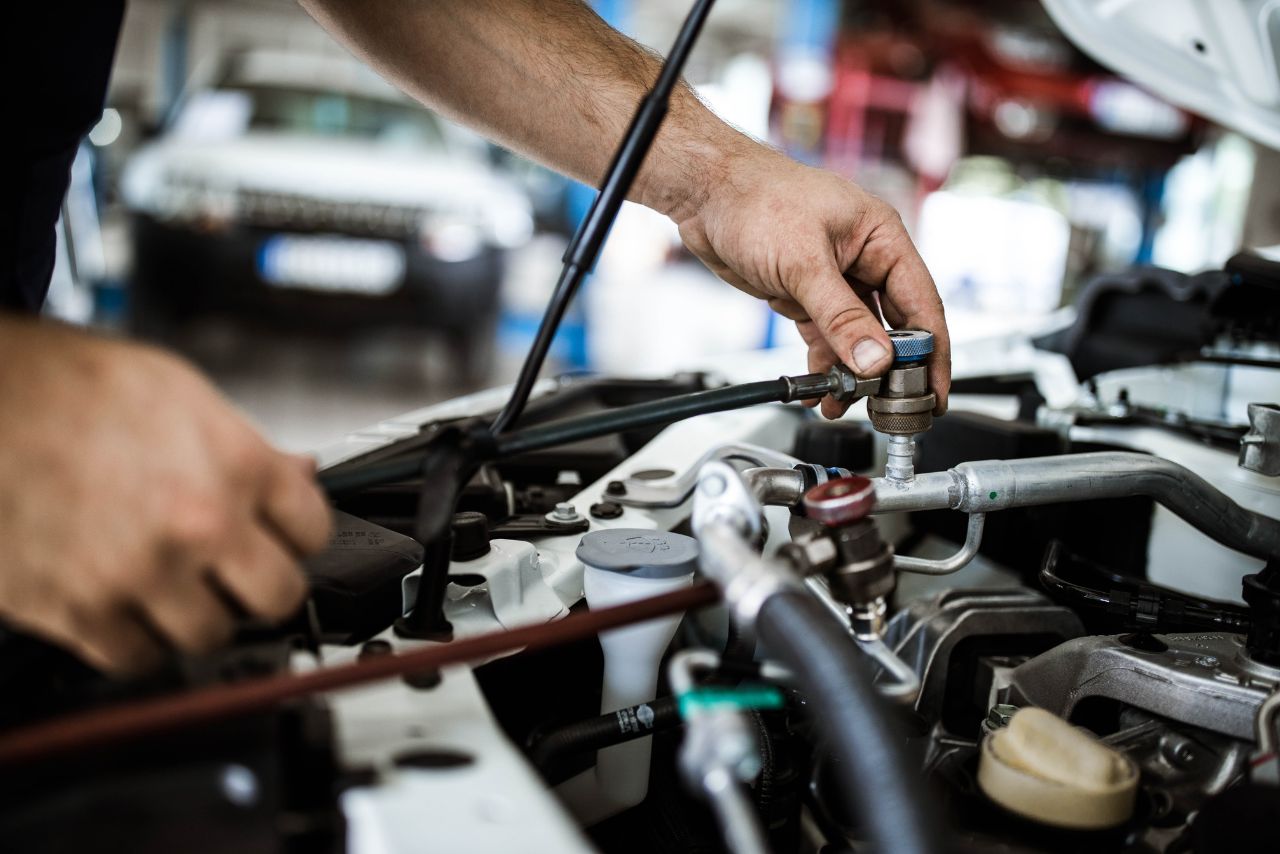

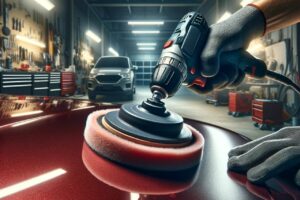



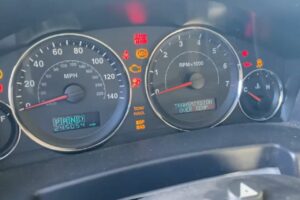
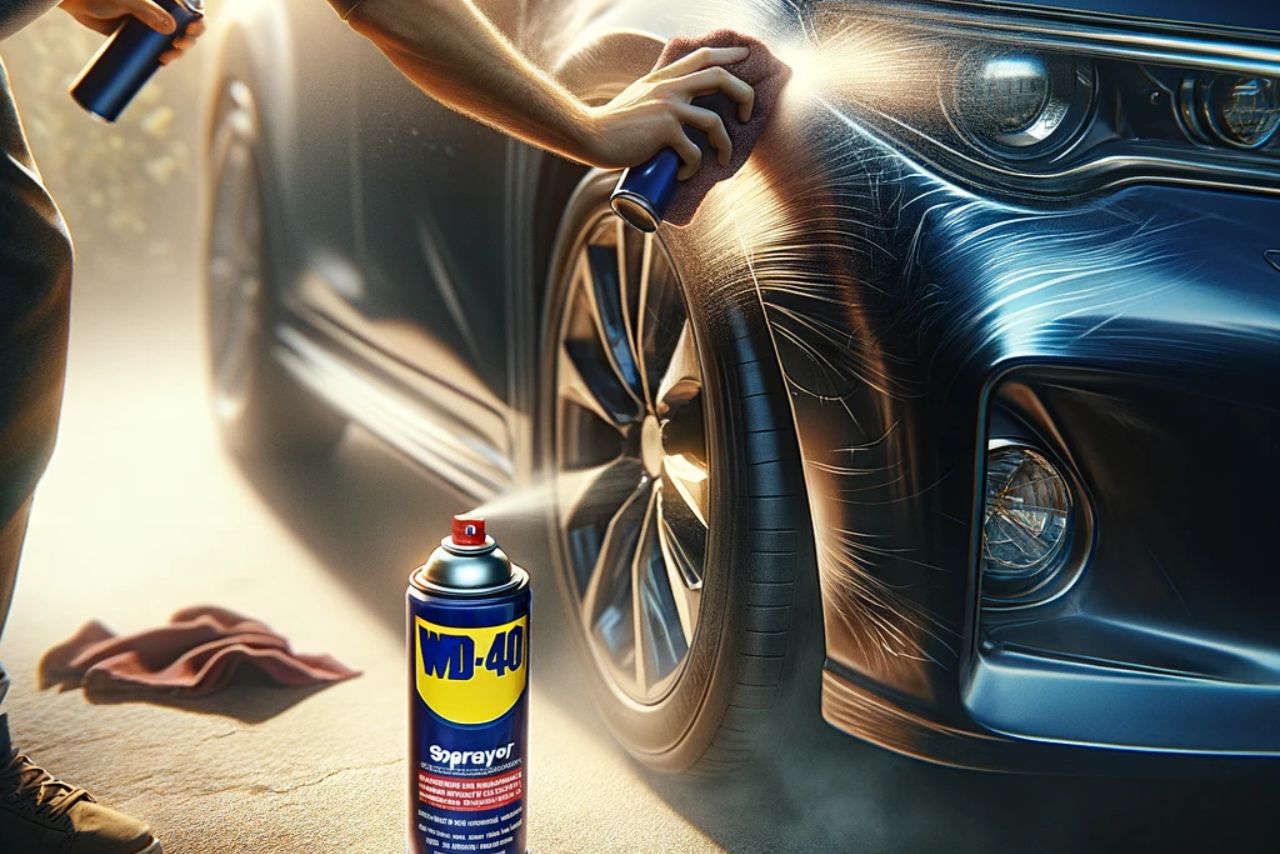
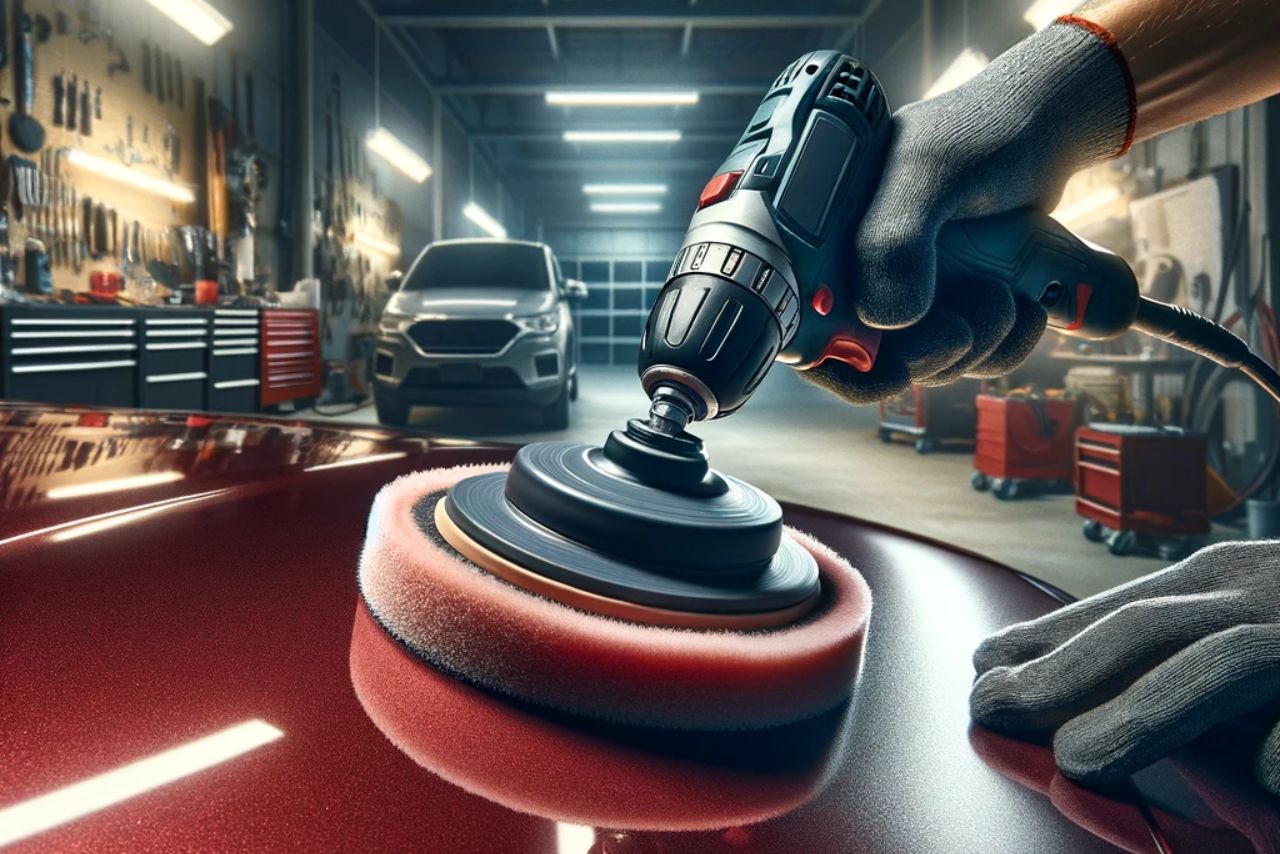

Leave a Reply